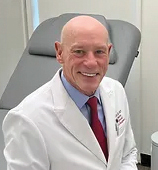
More Senior Health Articles
Holistic Internal Medicine and Geriatrics

Historically, American internal medicine represented classic western healthcare practices: problem-focused and solution oriented. Straight forward and efficient, western medicine has been designed to identify medical issues and address them in an organized, often algorithmic manner. Allopaths (MD) and osteopaths (DO) are trained with classic medical curricula. Osteopaths also receive training about the interrelationships of anatomy and muscle physiology as they pertain to disease. However, we have learned that the traditional training for MDs or DOs doesn’t cover all that is needed. The rise of interest in alternative and complimentary healthcare, enlightened internal medicine and family practice residencies and the emergence of geriatrics as a subspecialty has supported important progress towards Holism.
Holistic medicine simply recognizes that good healthcare must be about wellness and not just treatment of disease and injury. The holistic perspective is upon the whole person. The concept places a strong emphasis upon patients taking an active role in their wellness. Therefore, lifestyle factors are key.
Holistic practice encourages regular exercise, proper nutrition, spiritual wellness, healthy intimacy, effective sleep, risk avoidance and minimizing environmental hazards. Holistic medicine advocates for non-traditional disciplines such as Yoga, Tai Chi, massage therapy, acupuncture and naturopathy, but it does not dismiss classic tenets of western medical practice. This is critically important for all patients because a lot of alternative and complimentary medicine is based upon ethnic and cultural experience. Some of it lacks proof of efficacy derived from rigorous, well-controlled, scientific study.
Very often, alternative medicine is intended to address symptoms without demanding proven diagnosis. Complementary medicine should be considered as exactly that: complementary to well-proven diagnostic processes and treatment regimens that are designed to cure disease and mitigate debility.
For example, we know that ginger and curcumin help support some immune functions and Tai Chi reduces geriatric falls, improves mood and promotes overall well-being. However these kinds of things aren’t sufficient for taking care of someone with Parkinson’s disease, diabetic vascular disease or malignancy. We know that transcendental meditation is very effective for anxiety, depression and disorganized sleep, but it’s not sufficient for treating obstructive sleep apnea.
A holistic approach helps discover those lifestyle factors that are contributing to suboptimal health, leaving patients vulnerable to disease and debility that they might be able to prevent or at least modulate. When the holistic agenda is well-addressed, traditional western medicine works much better and patients’ quality of life is optimized.
We need both – the technology and regulation of classic western medicine applied in concert with the principles of alternative and complimentary medicine. That’s the approach at Goals of Care, PLLC. The results are reduced reliance upon medications, improved quality of life, reinforced independence and increased patient satisfaction.
Other Articles You May Find of Interest...
- 3 Types of Exercises Best for Seniors With Arthritis
- Independence Boost: How Medical Alerts Help Chronic Conditions
- Over-the-Counter Hearing Aids (OTC)
- Therapeutic In-Home Sauna Service for Homebound Seniors
- Staying Active and Engaged: A Guide to Enhancing Senior Wellbeing
- Technology in Nursing Homes: How Tech is Improving Care and Communication Within Nursing Homes
- Ensuring Bathroom Safety

















